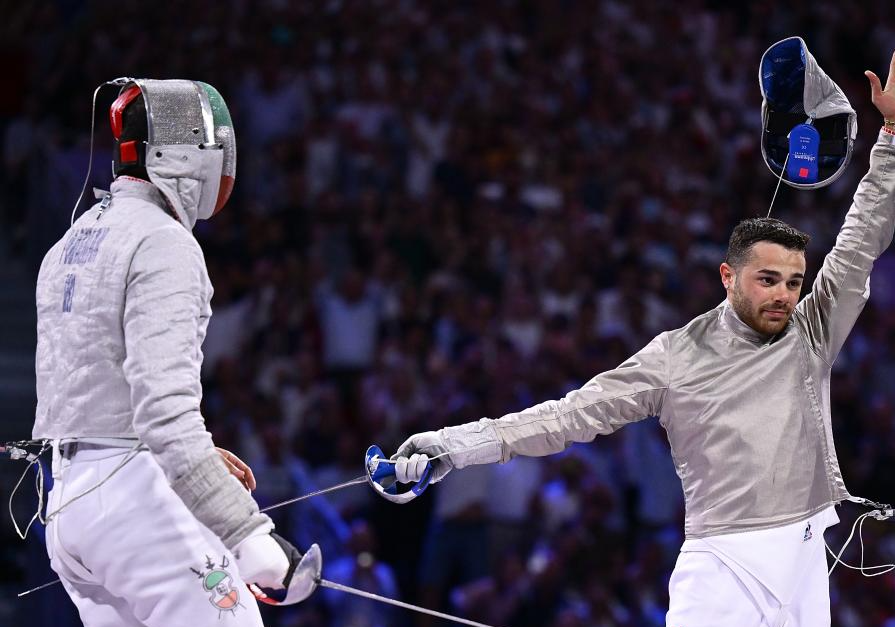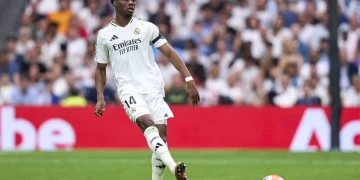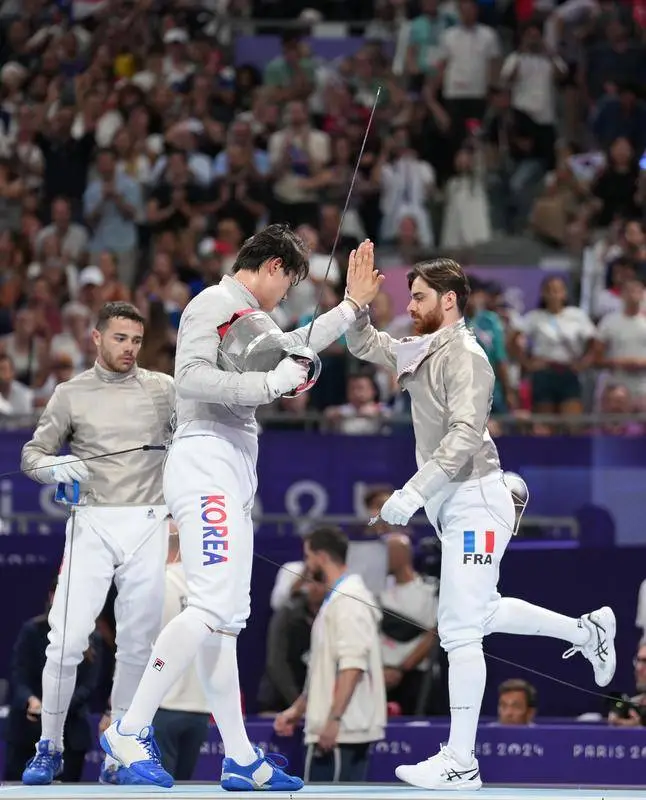Introduction: The Dominance of French Fencing
The French fencing team has long been one of the most successful and respected squads in the history of the sport. With a rich tradition of excellence, France has produced numerous Olympic champions, world titleholders, and top-ranked fencers across all disciplines. Their strength in both individual and team events has made them a dominant force in international competitions, consistently challenging for podium positions at World Championships and the Olympic Games.
As the 2023 World Fencing Championships approach, the question arises: Can the French fencing team continue their strong performance and secure the coveted team title this year?
This article will explore the current state of French fencing, analyze the key factors that have contributed to their success, and assess whether they have the potential to maintain their dominance in the team events at the upcoming World Championships.
I. The History of French Fencing: A Legacy of Excellence
A. Early Dominance and Historical Significance
France has been at the heart of fencing for centuries. The sport itself originated in Europe and was codified in France in the 19th century, making the country an early pioneer of modern fencing techniques. The French Fencing Federation (FFJ), established in 1906, has played a crucial role in the development of the sport, not only in France but also in shaping global fencing practices.
In the early days of competitive fencing, France established itself as a dominant force in both individual and team events, winning numerous titles at the World Fencing Championships and the Olympic Games. The country’s success in producing world-class fencers is rooted in its culture, which values both technical precision and tactical ingenuity.
B. Recent Successes: French Fencing’s Continued Dominance
Over the past few decades, the French fencing team has remained one of the most successful teams in the world. With standout athletes such as Romain Cannone, Manon Brunet, and Kilian Moser, the French team has consistently finished at the top of international rankings in both individual and team competitions.
The French team’s most recent success includes their team gold medal at the 2021 Tokyo Olympics in the men’s team foil event, which added to their rich history of Olympic success. Furthermore, they have consistently performed well at the FIE World Fencing Championships, with podium finishes across multiple disciplines and age groups.
II. Key Players: Who Are the Current French Fencing Stars?
To assess whether the French team can secure another World Championship title, it is crucial to consider the key players who are likely to lead the charge in 2023.
A. Romain Cannone – Men’s Foil Champion
One of the brightest stars on the French team is Romain Cannone, the reigning Olympic gold medalist in men’s foil. Cannone’s victory at the 2021 Tokyo Olympics was a breakthrough moment, as he emerged as one of the most dominant fencers in the world. His technical precision, quick reflexes, and mental toughness make him a key asset to the French team in any team event.
Since his Olympic victory, Cannone has continued to perform at an exceptionally high level, consistently finishing on the podium at World Cup events and maintaining his position near the top of the rankings. As the anchor of the French men’s foil team, Cannone will be pivotal in their bid to win the 2023 Team World Championship.
B. Manon Brunet – Women’s Epee Star
Manon Brunet is another integral player for the French fencing team, particularly in the women’s epee event. Brunet has long been a dominant force in women’s fencing, known for her fluid style and tactical awareness. She is a multiple-time World Championship medalist and Olympic bronze medalist, cementing her reputation as one of the most accomplished fencers of her generation.
Brunet’s skill set in team events is invaluable, as her ability to remain composed under pressure and execute key points in high-stakes situations makes her a standout performer. If the French women’s team is to capture the team gold at the 2023 World Championships, Brunet’s leadership and experience will be essential.
C. Kilian Moser – Men’s Sabre Power
Another key member of the French fencing team is Kilian Moser, who has emerged as a rising star in men’s sabre. Moser’s aggressive style and high-speed attacks make him a formidable opponent in individual events, but it is his ability to contribute to the success of the French men’s sabre team that makes him such a valuable asset. His consistency in international competitions, combined with his experience in team settings, makes him a strong candidate to help lead the French team to success in the team events.
D. The Women’s Foil Team: A Well-Rounded Squad
The French women’s foil team is also one to watch. With fencers like Ysaora Thibus and Sabrina Mikuła, the women’s foil team has become one of the most cohesive and successful units in international fencing. Thibus, in particular, has been a dominant presence on the World Cup circuit and has earned a reputation as one of the top foilists in the world.
The French women’s foil team has consistently reached the finals of the World Championships and has the potential to perform well in the 2023 team competition. The combination of experience and youth within the team makes them a strong contender to challenge for the title.
III. Key Factors for Success: Can France Maintain Their Momentum?
A. Team Chemistry and Depth
While individual talent is important, the success of a fencing team often depends on team chemistry and the ability of each fencer to work cohesively with their teammates. France has shown time and again that they are capable of excelling in team events, with their fencers having a strong sense of trust and collaboration. The ability to support each other, especially during tense moments, is a crucial factor in ensuring victory in team events.
The depth of the French team is also a major strength. With multiple world-class fencers in each discipline, France can rotate players in and out of team events, keeping their squad fresh and adaptable to different challenges. This depth gives them a significant advantage over teams with less flexibility.
B. Tactical Flexibility and Preparation
The French coaching staff has a reputation for crafting well-executed, adaptable strategies for team events. Whether it’s employing a more aggressive or defensive strategy depending on the match-up, the French team is known for being highly tactical in their approach to team competitions. Their preparation is often meticulous, with a focus on maximizing each fencer’s strengths and countering the opposition’s weaknesses.
C. The Pressure of Being Favorites
As the French team has consistently been among the top performers at major international events, they will undoubtedly enter the 2023 World Championships with high expectations. The pressure of being favorites can sometimes have a negative impact, particularly in tight team events where one or two mistakes can change the course of the competition. However, France’s history of dealing with pressure, coupled with their experienced leadership, should help mitigate any psychological challenges they may face.

IV. The Competition: Who Are France’s Main Rivals?
While the French team is undoubtedly one of the favorites for the 2023 World Championship title, they will face stiff competition from several other nations. Teams like Italy, Russia, and the United States will all be vying for top honors in the team events.
A. Italy: A Strong Contender in Men’s Foil and Women’s Epee
Italy has a long-standing tradition of success in fencing and is a perennial threat in the team events. Their men’s foil and women’s epee teams, in particular, are considered among the strongest in the world. With top athletes like Daniele Garozzo and Alessandra Fedri, Italy will be looking to challenge France for the team titles in 2023.
B. Russia: A Powerhouse in Women’s Foil and Men’s Sabre
Russia has been a dominant force in women’s foil and men’s sabre, with athletes like Sofya Velikaya and Artem Sychov leading the charge. Russia’s ability to consistently field top-level fencers in team events makes them a formidable opponent for the French team.
C. The United States: An Emerging Force
The United States has been steadily improving in fencing and is starting to pose a serious challenge in the team events. Their men’s and women’s foil teams, in particular, have shown significant promise, and athletes like Lee Kiefer and Alexander Massialas are making a name for themselves on the world stage.
V. Conclusion: Can France Continue Their Success?
The French fencing team enters the 2023 World Fencing Championships as one of the favorites to claim the team titles across multiple disciplines. With an impressive array of talent, including the likes of Romain Cannone, Manon Brunet, and Kilian Moser, France has the depth, experience, and skill to continue their legacy of excellence.
However, the competition will be fierce, with teams like Italy, Russia, and the United States poised to challenge France’s dominance. Success will depend on the team’s ability to maintain chemistry, execute effective strategies, and handle the pressure of being favorites.
If the French team can continue to perform at the high level they have set for themselves, there is no reason they cannot claim another team World Championship title. The question remains: Will 2023 be another year of French fencing supremacy, or will their rivals rise to the occasion? Only time will tell.






























Discussion about this post